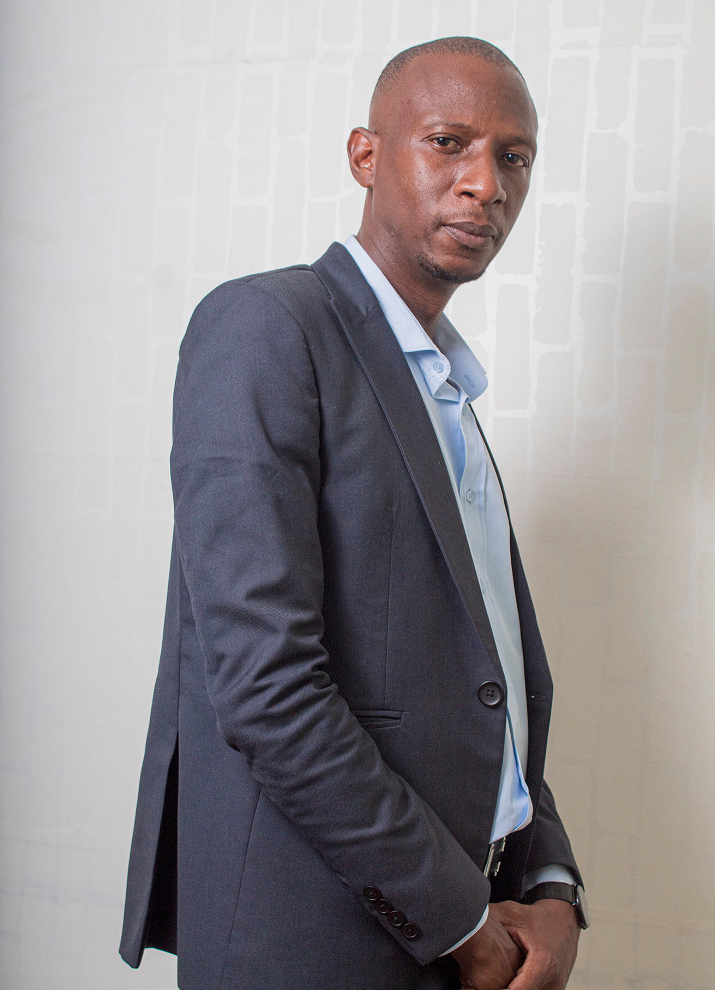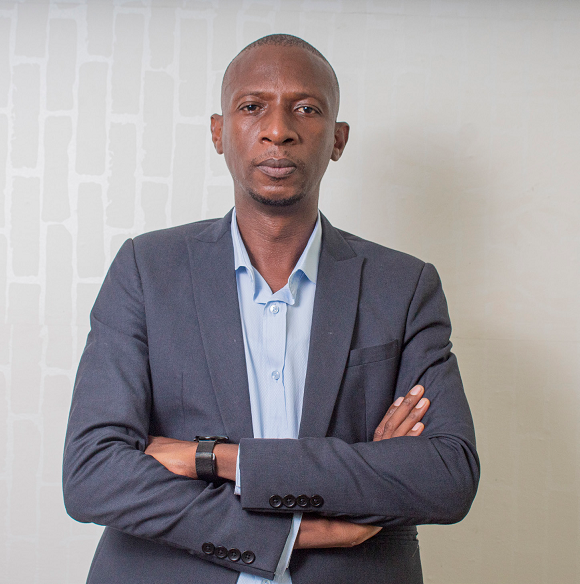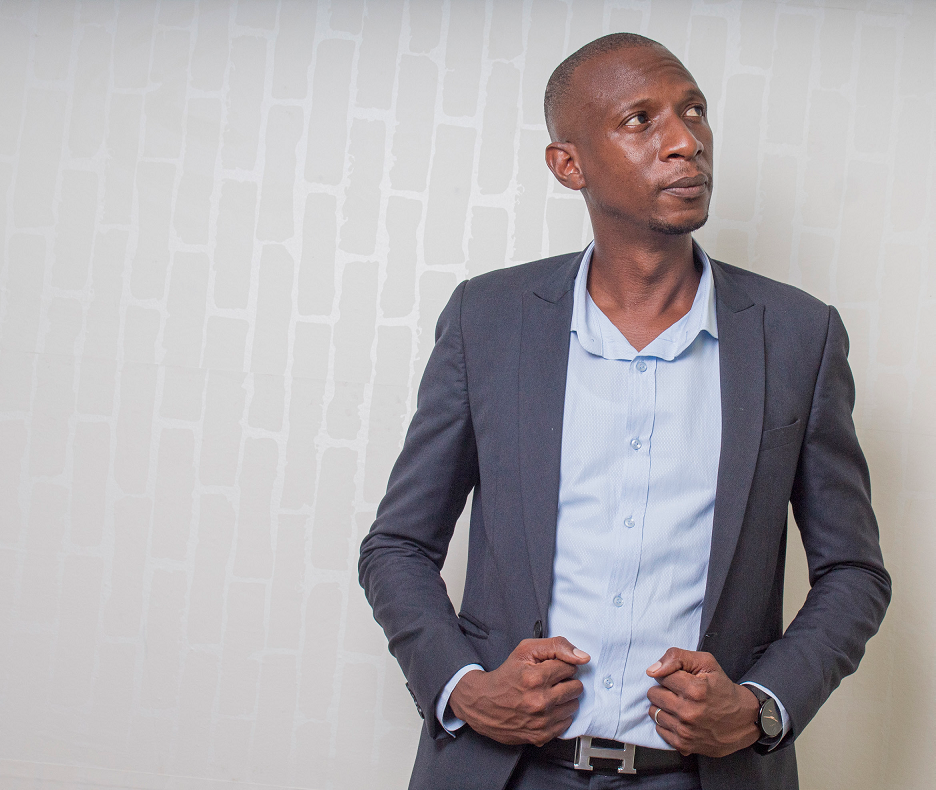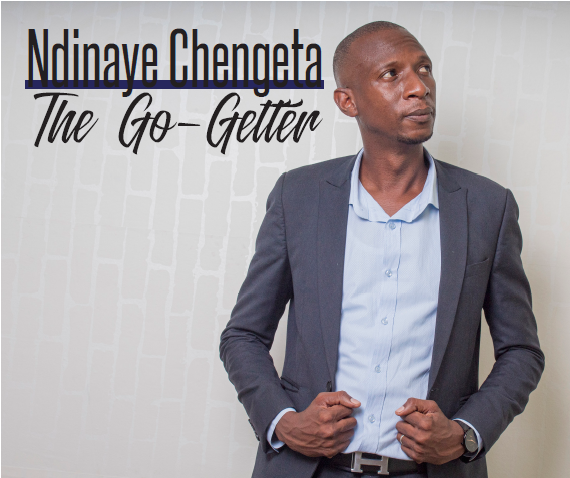Ndinaye Chengeta The Go-Getter
Celebrity World caught up with an ambitious and passionate local business man, Mr Ndinaye Changeta who owns Youth Development Farm (YDF) that lies between Molepolole and Thebephatshwa. The former teacher came up with the YDF initiatives in 2020 to help Batswana who wish to venture into farming.
Ndinaye Chengeta is a former teacher of English and Guidance & Counselling. When interviewed, he said, from the time he quit teaching, he realised that a lot of people were not doing enough in terms of molding the younger generation in Botswana. After six years of teaching he decided to set a record so that he could show people what he believes the world should be like, that’s when he realised that the industry was already congested and it required that the kids he was teaching needed to be inovative for them to fit in today’s world. So in venturing out, he decided to take multiple risks in venturing in areas he has never done before. At that period he had already started to run a popular bar and a club in Molepolole where he worked as a self taught deejay (DJ) and at some point someone approached him looking for a videographer and a DJ. As a risk taker he took that risk and covered the wedding of which the client was happy about it, that’s how Changeta’s Productions started.

He then came to Gaborone in order to try his luck with top dogs. His first business was in Commerce Park and he was running a popular modelling angency called CEP Super Models. He launched it and it was very competative with other modelling agencies but then he realised that it could not give him a future because he was more ambitious than that modelling agency. He then decided to run an airtime credit service which is what in the here and now Mascom, Orange and BeMobile calls for top ups “Nzamela”, he started that. Then the problem came in when they were supposed to be paid and the type of contracts that they had signed were against them, so they liquidated and he had to start business from scratch.
Chengeta said he was lucky because during that time he met Norman Moloi during the time he was shooting Thokolosi part 2 and he asked him to allow him to be part of the project which he now learnt through film production. After Thokolosi aired, he became recognised by Botswana Television, that’s why he decided to make a proposal to film the first movie in the country which was called Four Thirty. After shooting the movie it went international and Chengeta took the platform to be able to grow his film production company. That is when he invited Makgabaneng and government offices to showcase his work at the Capital Cinema. He then wrote a proposal for Makgabaneng TV program which was against the radio drama and they asked him to bring a sample. They went to American World Bank and they were funded with about 7 million through NACA. Unfortunately for them, when the money arrived it was supposed to be dispersed through NACA, so instead of getting a direct procurement they had to go through tender process. Chengeta said he tendered like everybody else, fortunately he had the product whilst others had only the samples and he won the tender. Four months along the line when they were supposed to be paid for production they were told that the tender should have lasted for 3 weeks, so they lost it. They had to re-tender and they won again since they came back with more episodes. They shot Makgabaneng and managed to make 52 episodes, that’s his journey into film.
With the above said, on his Youth Development Farm initiatives, Chengeta said after filming Makgabaneng which was then called Mareledi on TV he realised that the film industry was not competative and was very slow. He also came to realize that the approach towards it was going to get them in trouble, therefore he decided to take his money and ventured in the YDF initiatives. Chengeta said with that money, he bought a farm between Molepolole and Thebephatshwa and when he purchased it, his plan was to revolutionalize the farming industry. He therefore made a promise that he will help the youth of the country by the time he quit teaching. He made an assessment to say the govrnment spend a lot of money sponsoring the youth and the Ministry of Youth Sport and Culture spends huge budgets per year to fund youths in order to start projects. Fortunately, for Chengeta during the last lockdown, he came to realise that the country was now in trouble and there was no money so it called for him to jump start what he had been planning for the past years and protect the gorvenment funds as well as to help the youth. Chengeta then speeded up the motion in order to create facilities in the same farm that he purchased. He had to make sure that the farm had to accommodate as many people as possible and in doing so, he launched the initiatives.
According to Chengeta, the first initiative is called The Goat Initiative, what happens here is, he provides the kraals, water and labour to the youth who form groups of twenty in order to utilize the facilities. He said the other initiative is The Poultry Initiative, just like with the goat initiative, where he provides the youth with units, water and labour. The other one is the sheep intiative and it follows the same methodology as the goats. He said at the moment, he has around 600 members in the goat initiative, 1000 members in the poultry initiative and 1000 members in the sheep initiative, so in total he has 2600 members in these intiatives and still growing. To date Chengeta is joined by the Ministry of Agricuture which generally supervises the intire projects and makes sure that the projects runs well without experiencing high mortality. Their duty is to commecialise the products that they are producing.
Also, they are supported by the Ministry of Trade and Industry and their job is to find the market for their products as well as to guide and assist in terms of skills share and mainly assist members in registering their incorporatives. He added that they have the Ministry of Youth, Sport and Culture and their target is for the ministry to fund the youth to utilize the farm and make sure that their projects are protected for the whole year in the incubation format so that the government money is used correctly whilst projects are being protected.
When asked to break it down on the process of contribution by the members, Chengeta said, “What happens is that all our members for the goat initiative were contributing P3000. Out of that money they were put into groups of 20, which means each group utilize a figure of P60 000 and out of that P30 000 is utilized for purchasing of goats. In issue of sheep, P30 000 is used to purchase the sheep, P18 000 is used by the groups to buy the feeds whilst the P12 000 is utilised to pay for the labours at the rate of P1000 per month, so by the time we are done we are at zero balance. For the poultry is the same process again, they pay P2 500 for the whole three months and their groups make a total of P50 000. Out of that P9 000 is used to buy the layers while P29 000 is used to buy feeds, whereas P12 000 is used for labour at the cost of P1000 per month and we reach zero balance again.”

Initially these initiatives were formed for the youth, now other parents are joining to supervise their children. Retired people who are interested and have too much ample time are also catered for.
Talking about his benefits on the initiatives, Chengeta mentioned that he usually doesn’t disclose how he benefits because the project is far from the beginning and where they are now they are just beginning and what he benefits is at the far end because this project was built on a platform of credibility to do business at a larger scale with the government of Botswana and that is where his money lies.
On the mission, vision and goals of the initiatives, Chengeta stated that they are far from lanching the farm and it will be launced once all the projects are active. He said their idea is to be able to draw in embassies from other countries that is to be able to buy into this methodology for their own youth in their countries. He also said, in short, their products’ vision in the end is to provide food security and contribute to the supply chain in the country. “We produce a lot of food more especially in egg production. I want us to become a hub for small stock and be able to supply big numbers to other countries. I also want to give foreigners in our country a competition, so I want to break a norm that no Motswana can do it and succeed even without much knowlegdge. I am a true living testimony that I didn’t go to school to engage in film production, Dj and farming but I still persuaded them,” he added.

Challenges are there for everyone to tackle, and just like any other business person, Chengeta encountered some challenges since the inception of the project. He said in social media, attacks are the biggest challenges that he has ever came across, adding that these pages could be a platform that can be used for good but they are being misused. He also said formulation of stories that are unverified find their way through those pages and therefore he strongly believes that these platforms need to be monitored closely and should be platforms that could be used for good and not bad. “As I expand in that, social media through the groups formed can make or break a product. Another challenge is trust, a lot of prople have cheated others and it’s very fortunate that I am the type of person that I am since I have built credibility in what I did,” he said.
About having sponsors for the initiatives, Mr Chengeta said he doesn’t have any stakeholders nor sponsors. He also said he uses his own money, and has built those structure with no one’s help, adding that there is only one gentleman to have helped him to excavate a dam. Other than that he has paid for everything in that farm.
Chengeta is happy that as a family he is able to manage his time for business, family and other errands. He further acknowledged the fact that he married a military wife because she is disciplined, therefore he doesn’t monitor her because he prefers that they both live their own lives and do the things they like. Therefore, when they get home that hapiness is still there and more importantly they will unite it to their child. He said, “Most of the time I am very busy and also my wife is, so I utilise the time when she is not around to put pressure in everything that is required from me so that when my wife is around I have to be around too. I also utilize the times when she and our kid are asleep to really push business. My duty is to make sure that my wife doesn’t realise that I don’t exist nor my kid, I always have to make sure that I am there throughout.”
The project’s aim is to expand to many Batswana across the whole country. They are going to expand and have already got an initiative that is purchasing and selling of land. He said they are not only going to focus on farming but his vision is to self contain the country. “I can only sell the concept to other countries not expanding my business to them, he added.”
As a responsible citizen of Botswana, Chengeta has shown his helping hand by giving back to the community. According to him, in December people in the village come to the farm to have free meals then they move around donating clothes. He said there is an issue of employment again, the welfare in Molepolole village and shortage of water, so he supplies almost the whole village with water from the farm. This versatile man, is also a counsellor by profession, he therefore counsel people for free on social media and all these shows that he has changed a lot of peoples’ lives.
Mr Chengeta advices other emerging entrepreneurs by saying, “When you have an idea don’t try to fun-tune it, just start and don’t think too much about it because when you start there are dynamics that keep into place but if you are going to sit on an idea and you do not implement, you will not succeed. Most importantly have faith, look into me, who would have thought that the gorvenment will step in my i

